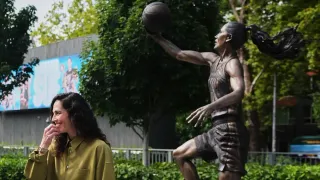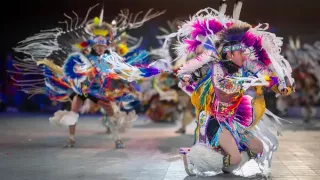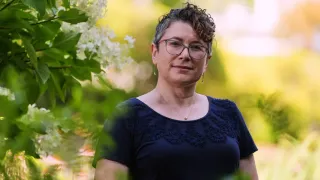
3 hours ago
Andry Hernández Romero Speaks Out In Candid Interview: “Being Venezuelan Is Not a Crime”
READ TIME: 3 MIN.
Andry Hernández Romero, a gay Venezuelan makeup artist, has emerged as a powerful voice for LGBTQ+ migrants following his survival of detention in El Salvador’s Central Confinement Center for Terrorism (CECOT). In an exclusive interview with The Advocate, Romero described the ordeal as a fight for both his life and identity, stating, “I want the world to know that being Venezuelan is not a crime” . His story highlights the acute dangers faced by queer asylum seekers and the international solidarity required to protect them.
Romero’s journey began when he fled Venezuela, seeking safety and the freedom to live authentically as a gay man. After arriving at the U.S. border, his asylum process took a dire turn. Instead of protection, Romero was transferred to CECOT, a maximum-security prison in El Salvador known for its harsh conditions and allegations of human rights abuses .
In his interview, Romero recounted the fear and uncertainty he faced. “They told us we would die there,” he revealed, underscoring the psychological torment endured by detainees . The experience was compounded by discrimination against his Venezuelan nationality and his LGBTQ+ identity, which made him a target for further mistreatment.
Romero’s plight did not go unnoticed. A coalition of American and international organizations mobilized to secure his release, highlighting the growing power of cross-border advocacy in defending LGBTQ+ rights. The Advocate detailed how these organizations combined expertise, resources, and public pressure to challenge the wrongful detention and eventual release of Romero .
Romero’s case quickly became emblematic of the broader struggles faced by queer asylum seekers—who are often caught between hostile governments, xenophobia, and anti-LGBTQ+ policies. “Passing the ‘credible fear’ interview was supposed to be the first step to safety,” Romero explained, referencing the initial U.S. asylum screening process, “but instead I was sent to a place where I feared for my life every day” .
Romero’s experience underscores the urgent need for reforms in how LGBTQ+ migrants are treated by immigration systems around the world. Many face compounded risks—not only from violence or persecution in their home countries, but also during transit or in detention. Human rights organizations continue to document abuses faced by queer migrants, particularly transgender people and those challenging gender norms, when they are held in facilities that disregard their safety or dignity .
Romero’s testimony to The Advocate serves as a rallying cry for change: “No one should be punished for seeking safety, or for who they are. We are human beings deserving of respect and protection.” His words have resonated widely across social media and LGBTQ+ advocacy networks, prompting renewed calls for international accountability and solidarity .
As Romero rebuilds his life, he has become an outspoken advocate, urging governments and communities to recognize the unique challenges faced by LGBTQ+ migrants. He credits his survival to the support of activists, legal experts, and everyday allies who refused to let his story end in silence .
His case is a stark reminder of the dangers that persist for queer people fleeing persecution, and the power of collective action to create change. “I survived, but there are many others who still need help,” Romero concluded. His message is clear: the fight for justice, dignity, and freedom is far from over.






